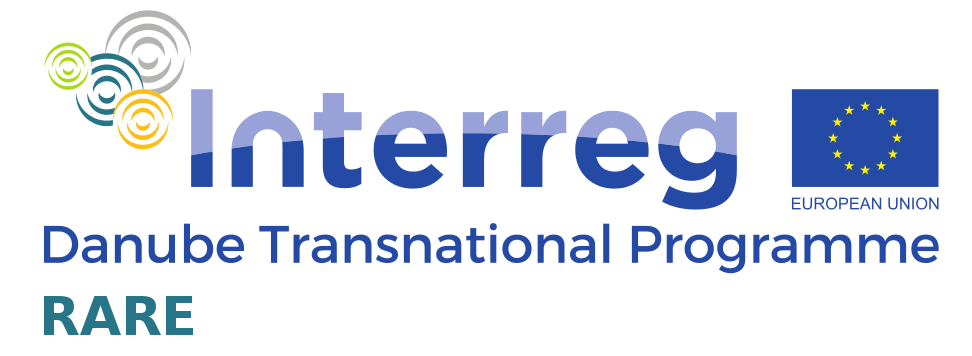CHANGING DISCOURSES – CHANGING PRACTICES: RARE – THE ROMA AS HUMAN RESOURCES
CHANGING DISCOURSES – CHANGING PRACTICES: RARE – THE ROMA AS HUMAN RESOURCES ENTERING THE SLOVAK LABOUR MARKET
ETP, together with the Centre of Social and Psychological Sciences of the Slovak Academy of Sciences and partners from eight countries, have received a grant worth more than two million euro with its focus on social innovation within both the EU Strategy for the Danube Region (Danube Strategy) as well as the EU program entitled “Interreg” to support cooperation and improvement of the Central Europe region.
Each EU citizen should have equal access and rights to quality life, quality education, decent labour opportunities and conditions and quality infrastructure. It does not matter whether citizens live in a ghetto or not. Each EU citizen is poised to prove beneficial to society. It is up to each member of society to decide if a community-wide assistance will be provided to those people who happen to have been born and raised in segregated communities. Sometimes just a little help from the general public is all that is required to launch an enormous ripple effect in the dramatic improvement in quality of life for all.
The international project entitled “Changing Discourse – Changing Practise: RARE – Roma as Human Resources“ has introduced new insights regarding the Roma community in the local economy and labour market.
The main message of this project underscores the certainty that Roma people promise to provide a significant untapped economical potential for aging Europe as well as providing Europe significant future social capital as well.
The Roma people comprise the largest ethnic minority in Europe. Most of the estimated 5.2 million Roma people living in the Danube region today face discrimination and exclusion from the labour market. This is one of the reasons why European countries are losing hundreds of millions of euros annually both from losses in productivity and from the significant expenses of social contributions from the respective governments.
During the RARE project implementation, experts from 21 organizations from Slovakia, Czech Republic, Hungary, Romania, Serbia, Bulgaria, Moldovia, and Ukraine, representing a large contingent of social and economic partners from the private, public and academic sphere, will conduct eight innovative pilot projects leading to (i) effective labour integration of Roma people; (ii) evaluation of outcomes; (iii) convincing policy recommendations of innovative models of effective institutional cooperation and (iv) new financial and non-financial setups.
At the same time, the RARE project will also monitor the efficiency of interventions and their efficacy as an economic asset for public finances.
One of the first outputs of the project is the mapping of barriers and correspondent analysis of situational circumstances of the Roma people in six countries of the Danube region.
ETP, as well as all of the other project partners, are convinced that mobilization of labour forces, comprehensive development strategies and temporary protected work places are as important as sensitization of public opinion and fighting against discrimination in the labour market.
The innovative ETP pilot initiative, as a part of the RARE project, will be implemented in one of the least developed localities in Slovakia – the Luník IX suburb in Košice. We will apply the strategic tools of this project’s social innovation through financial inclusion and inclusive measures of involving people in improving their own critical housing situation via self-help. Jointly with our other activities it will bring the ETP clients from Lunik IX better prospects for employment.
The prospect of the future successful entry of present-day children and youth from Luník IX into the standard of social life already enjoyed by Europeans at large is an expectation to be realized by our long-term guiding engagement with the young population of the Lunik IX suburb.


